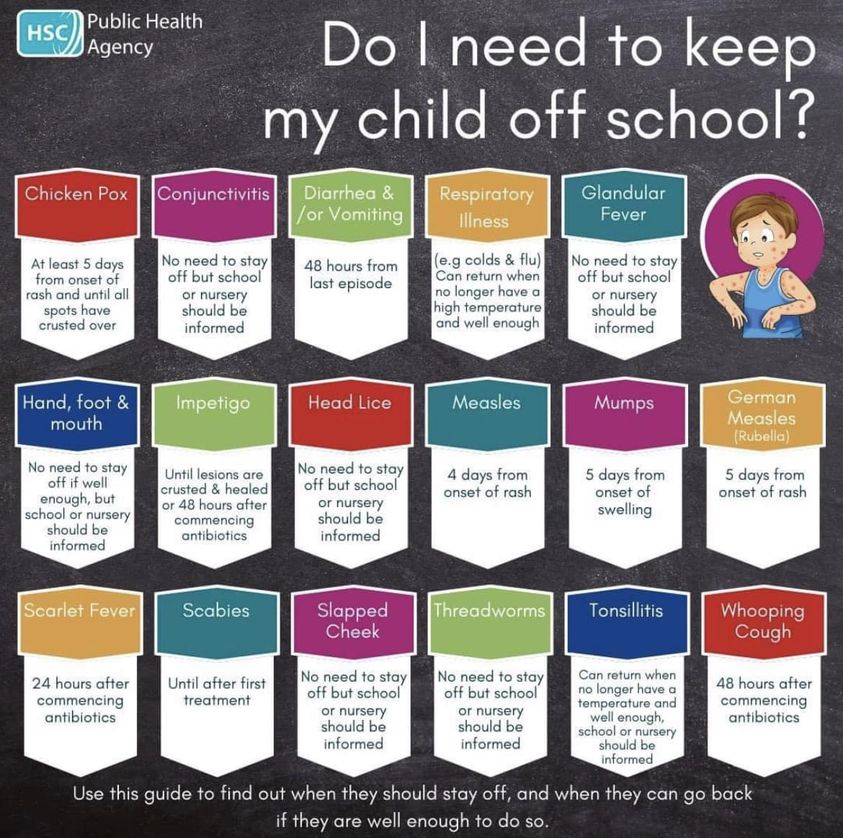


Illness
A child who is unwell and unfit to attend school should be kept at home by the parent/carer until fully recovered. Please ring the school office to report your child absence.
In some circumstances, if teachers feel that a pupil is not well enough to be in school, the parent/carer will be contacted to come and collect their child.
Any child who has vomited or has diarrhoea will not be allowed to return to school for 48 hours from the last outbreak, this is to limit the spread to other children and staff and is in line with advice from the Health Protection Agency.
General Medication
Unfortunately Bratton Primary School cannot take responsibility for administering medication for general ailments, including antibiotics unless, they are clearly described as requiring 4 doses a day – therefore, a needed dose at lunchtime.
We have been assured by health professionals where medicines require three or less doses per day, the suggested pattern for school days is to be given before and after school at tea and at bedtime.
The same principle can also be applied to medications such as creams for conjunctivitis etc.
Alternatively, parents always have the option of coming into the school and administering the medication themselves.
Self-Medication
Please do not send in any medication with your child to school for self-medication (including herbal remedies).
Any medication found on a child will be taken to the office for safe keeping and returned to the Parent/Career at the end of the school day.
This is to ensure the safety and wellbeing of all of our pupils.
Long Term Medication
Medication is only administered in school in specific circumstances in cases of long term complaints (e.g. asthma, epilepsy), and following appropriate training and briefing from medical professionals.
In such circumstances:
A medical form/health care plan will be put in place in consultation with the Head teacher, parent/carer and where appropriate the school nurse.
All medication must be clearly labelled with the child’s name, doctor, prescribed dose, possible side effects.
Medication is taken under supervision, and witnessed by a third party. A register will be kept detailing the medication taken and when, who supervised and who witnessed.
It is the parents responsibility to make sure that any medicine is not out of date
All medication will be kept in the school office or put in the office fridge.
On a day or residential trip, the named trip leader will take responsibility for ensuring that medication is taken from school for the duration of the trip and administered in line with the policy.
Complex Medical Needs
Children with complex medical needs may require an Individual care plan (ICP).
Individual healthcare plans can help to ensure that a pupil with a medical condition is effectively supported in school.
The plan will state exactly what needs to be done, when and by whom. Plans are drawn up in partnership between the school, parents and a relevant healthcare professional who can best advise on the particular needs of the child. Pupils will also be involved when appropriate.
The aim of the plan is to capture the steps the school should take to help the child manage their condition and overcome any potential barriers to getting the most from their education.
Plans will be reviewed at least annually or earlier if evidence is presented that the child’s needs have changed.
Where a child has a special educational need identified in an EHC (Education, Health and Care plan), the individual healthcare plan will be linked to or become part of it.

Medical Consent form
